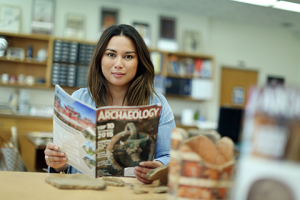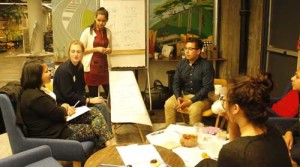LOS ANGELES — California State Los Angeles anthropology major is one of only eight college students in the nation selected to participate in the competitive Ifugao Archaeological Project (IAP).
Layco will conduct archaeological work in the Ifugao region of the Philippines for five weeks this summer. She will join a field project crew composed of university students, as well as early career archaeologists.
Funded by the National Science Foundation-Research Experience for Undergraduates Program, the project will examine anthropological issues that include the relationship between agricultural and irrigation systems, and effects of colonialism on local political and economic activities.
“I never dreamed school could be so exciting,” said Layco, a resident of Hollywood. “Suddenly my life has been turned upside down and I am preparing to leave for a great adventure.”
Layco was born in Los Angeles and raised in Oregon. She started her college career in Portland Community College, and completed her associate degree at Los Angeles Community College before transferring to Cal State LA.
At Cal State LA, Layco is a member of the Society for the Advancement of Mesoamerican Studies and the Society for Biological Anthropology. She volunteers at the California Coastal Archaeology Laboratory, examining and analyzing ecofacts from San Nicolas Island. She also spends time in the University’s Forensic Anthropology Laboratory, where she organizes osteological remains. She has recently been inducted into the Golden Key International Honour Society and the LAMBDA Alpha National Anthropology Honor Society.
“I am absolutely thrilled for Wendy because she is such a hard working student,” said Professor James Brady, of Cal State LA’s Department of Anthropology, who is Layco’s adviser. “This is exactly the break she needs to further herself in the field of archaeology.”
The NSF-REU Ifugao Program scholarship will cover travel expenses, tuition, and room and board.
The project is hosted by UCLA, the Archaeological Studies Program-University of the Philippines, the National Museum of the Philippines, the Institute for Field Research and the Save the Ifugao Terraces Movements, Inc.



